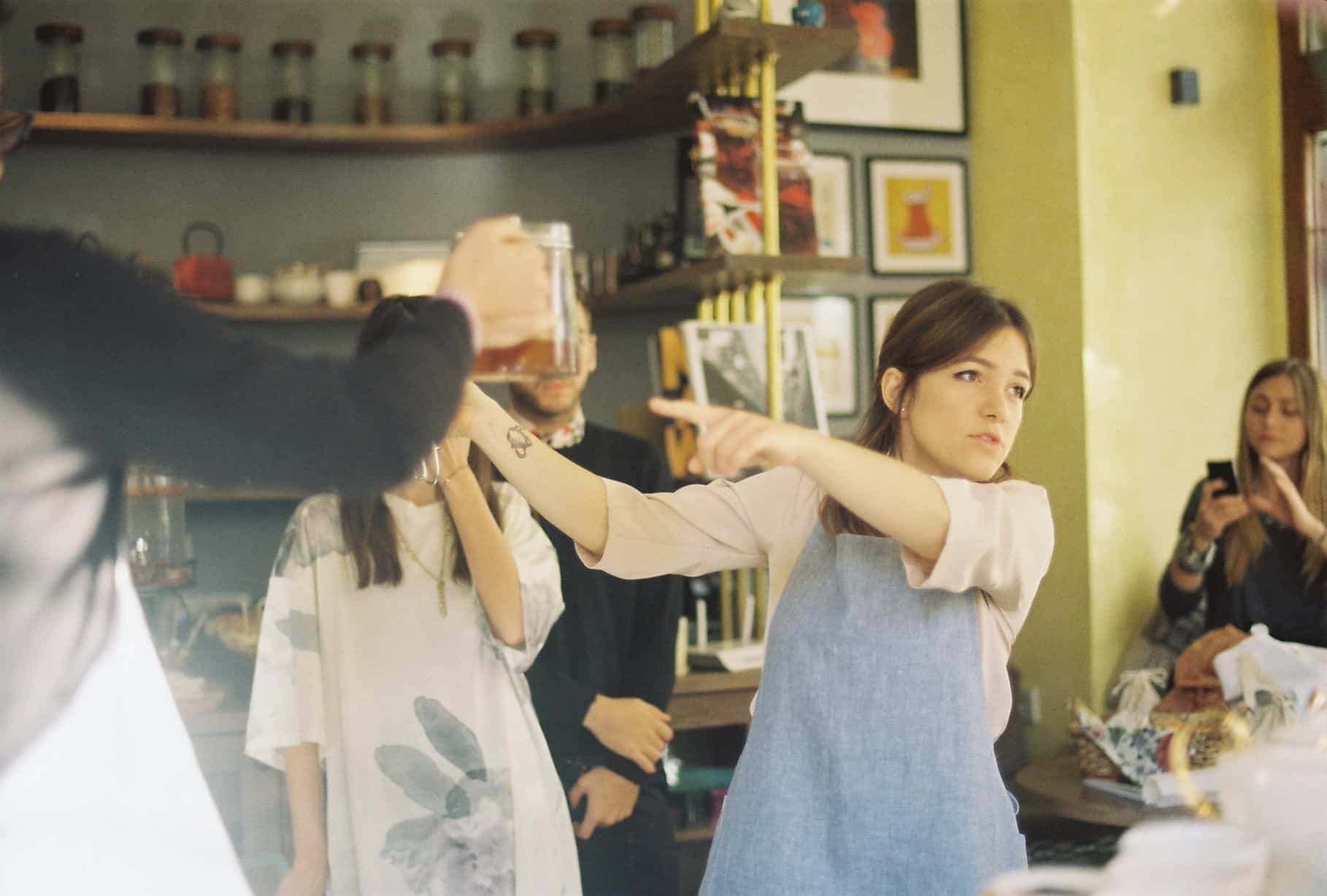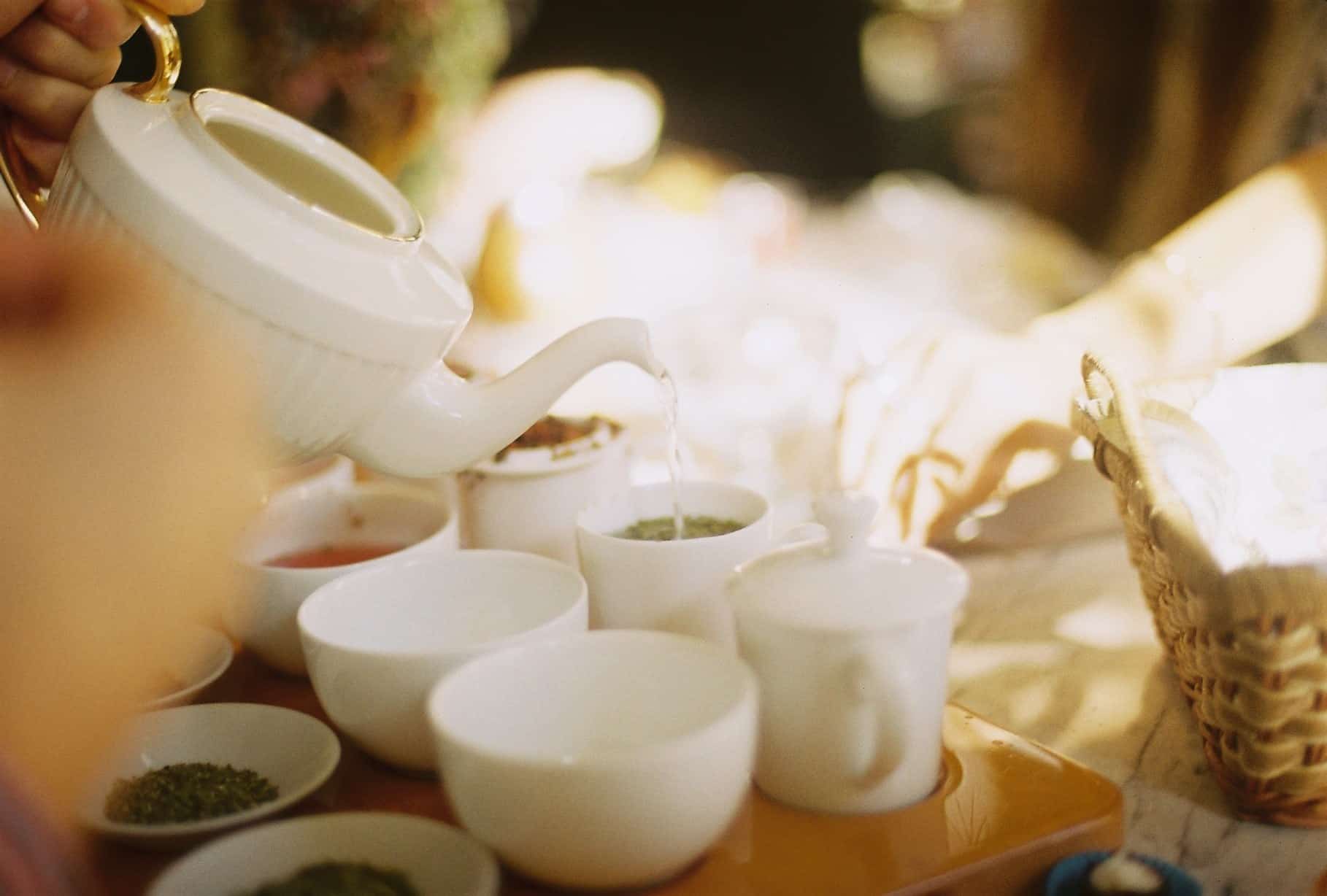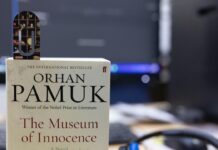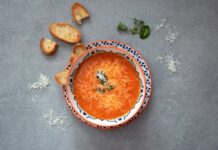There is no debating that tea is central to the very fabric of life in Turkey. A quick meander through any bustling neighborhood will provide all the evidence one needs. At a closer look, it’s also clear the landscape is slowly changing, with more blends and dedicated variety shops popping up. Ece Erel, founder of TeapoTea, has long embodied a passion for the world’s favorite hot beverage and its vast array of secrets to be unlocked. Branching off from her background as a chemical engineer, Ece has spent much of her professional career navigating through the world of tea – aiming to better understand every aspect of the trade and share that knowledge with the larger communities around her. In the process, she has gained the illustrious title of Tea Master, an esteemed international certification provided to those who prove a comprehensive understanding of the many complexities of the beloved drink. Ece offers consultations to anyone who seeks it – from some of the biggest companies in the country to individuals who simply want to learn a bit more about what they’re brewing. In even a quick chat with Ece, her love of the craft shines through. From hosting workshops, such as her recent Tea 101 session with the ATÖLYE community, to utilizing her engineering background in tinkering with brewing processes, to working on a book on the evolution of tea culture at large, her commitment is total and her enthusiasm contagious. Through it all, she maintains an appreciation for Turkey’s dedicated tea culture, hoping to nurture it and play a part in its future.
We took some time to speak with Ece on what led her to build a career around tea, the process of becoming a certified Tea Master, the intricacies of running a project like TeapoTea, and what the next steps are in sharing her passion with the world.

Could you tell us a bit about yourself and your background?
My name is Ece and I’m actually a chemical engineer. I studied economics and management for my Master’s degree. I always had a passion for tea that started when I was in kindergarten. I wanted to be an herbalist when I was a child. For me, drinking tea was just a hobby growing up. During my Master’s program, there was this tea shop and they had great teas from all around the world. They saw I was really interested in tea and asked if I wanted to try their samples and write a report for them as a consultation. I said yes. Then I was living abroad and started wanting to do online reports to keep track of what I was trying, as I was moving around a lot. It eventually went on to become a tea blog, TeapoTea. It was basically the first Turkish tea blog at the time, in 2011. It somehow became popular and a Tea Master reached out to me asking for some reports. I sent them a few and they offered for me to join some of their courses in Europe. I accepted and went on to become a certified tea master.
Meanwhile, I was working in corporate jobs. I had started my management consultancy, but I knew it wasn’t my calling. So I tried my chances with Unilever and started working in their marketing department for Lipton. I was really happy there and worked in that position for two years from 2014 to 2016. I had been doing tea consultancy on the side and it actually became pretty popular, because as you know tea is pretty popular here. People were really interested. So in 2016, I started my own company and have been doing consultancy for many firms and big companies like Starbucks, Unilever, Lipton, Paşabahçe, and so forth.
So you started the blog in 2011, but it didn’t really become a business pursuit until 2016?
Actually, I would say it became a business in 2012 as it was the first time I offered tea consultancy to a cafe. However, at that time, I didn’t really perceive it as a business. It was just a hobby I was earning money from. The brand of TeapoTea has been around since then though.
Could you elaborate a bit on becoming a Tea Master?
Sure. So there are two levels to it. You first become a Tea Sommelier and then go on to become a Tea Master. In doing so, you of course take some courses from other trained Tea Masters. What it involves is learning everything regarding tea. You start tasting teas, writing reports, etc. Then you have these blind tastings where you’re given a mystery tea and have to guess what type of teas they are. From there, you go on to do your own blends and take an exam and so forth. Eventually, you become an internationally accredited Tea Master.

So you’re able to taste a tea and understand the ingredients?
Exactly, that’s a huge part of my business I would say.
Could you tell us a bit about how the business itself operates? How do you connect with clients?
It’s a real niche business and if they’re involved in tea here, they’ll often see my name and reach out. Whenever someone reaches out to me, even if it’s just an individual with a small question, I always try to contact them back, as this is my passion. I enjoy answering their questions. It can be a big company or it can just be a person who has an interest in tea.
Is it just you?
Well, I have a company and being a Tea Master is not my only profession. On the tea business side, I’m the only Tea Master inside the company.
Where did the name come from?
Actually, there is no inspiration behind the name. [Laughter.] It was just a random Blogspot at first and I needed to find a name because it was gaining in popularity. I was really stuck on it for a few months and couldn’t come up with a proper name. So I started asking my friends and one of my friends advised me to call it TeapoTea, because of the wordplay on ‘teapot’ and ‘tea’. I thought I’d use it for just a few months, but I never found a better name and now it’s still with me.
What is your typical workflow and how does ATOLYE tie into it?
So I don’t really have a ‘typical’ workflow. There are times where I only have my projects and in general, I don’t have my own things that follow a regular pattern. Sometimes I work with a gallery and I have to do random stuff for them, or other times I might be working on a really technical report and approach it with a more scientific perspective. Generally, in a normal week, I will have two days of tea tasting. I might start the day reading news articles regarding tea. I’ll sort through e-mails and then focus on my project list.
In regards to ATÖLYE, as I’m doing a niche job and I don’t have many people doing the same thing, I needed new ideas and new people to reach out to. I had tea bag ideas for example but didn’t know who could help me with the drawing. So I ended up coming to ATÖLYE for inspiration and ended up working with many people from different fields. It has been really inspiring and it’s exciting because you never know what you might come up with. You might work with an illustrator and it could end up becoming an art project or even a book. You’re always coming up with something new.
How much of an influence does your being Turkish have on your career path?
The thing is, my parents don’t really drink tea and I never had this type of tea culture in my family. That said, I grew up in Adana, where I was always close to nature and had all these herbs around me, as well as people interested in herbs like farmers. It ended up being an inspiration for me. For a career in tea though, it was still really unexpected.
Since I’ve started doing this business, the culture here has certainly pulled at me. People here are addicted to tea and relationships take place around tea, with people coming together just to drink tea. It is certainly a huge fuel for me.
Does it give you any real advantage being from Turkey?
Yes, definitely. We’re in a place with tea fields all around. I know how a tea plant is grown, what takes place on the business side, how people work in it, and the whole process from A to Z. Also, being a chemical engineer plays a big part.
You gave a ‘Tea 101’ workshop here recently. Could you tell us a bit about it and is it something you do frequently?
So it’s not really something I do frequently. It’s on the passion side more than the business side. As a tea person, I feel a need to share my knowledge. What I did here was more in that style. I wanted to give a workshop on how tea is influenced by nature, how it is impacted by humans, and so forth. This workshop was more on tea logic, let’s say. I might do something like this with clients. I will usually do custom stuff rather than packages like ‘Tea 101’.

It seemed like you had a lot of equipment for the workshop. What goes into the prep side?
We have unique glasses, blend cards, service sheets, tea guides, tasting reports, presentations, different style teapots, thermometers, lots of small stuff like teaspoons, etc. I have a small space where I keep all my equipment. It’s like a small tea warehouse. [Laughter.]
How many blends have you tried by now?
More than 1,000. It’s a lot of tea.
Does it frustrate you at all that people here just typically drink the standard type of Turkish tea?
Well, they might not even know what type of plant is used to make tea. They’re often amazed by the fact that the plant for green tea and black tea are basically the same thing, from the same plant. For me, it’s the question of why don’t you know what you’re drinking? Actually, in the world, there are over 10,000 types of tea, but in Turkey, there are only really two or three types. Turkish tea is the only one people drink. I also see it as potential though, to build more knowledge and reach more people.
What’s next on the horizon for you? Any plans or goals that you’d like to share?
There are two things I’d really like to do. On the passion-driven side, I’d like to reach more and more people and help them understand more about tea. On the other side, I’d like to take engineering background and bring something better for tea, tea farmers, and people around the world. I would like to do something like that and make use of my knowledge. Right now, I’m working on a new tea brewing process in collaborations with other engineers. Also, I’m working on a new book on how tea culture evolved in both Turkish culture and at large.
As we’re a publication for foreigners in Turkey and particularly Istanbul, any closing bits of advice for making the most of their time here?
Observing tea culture in Turkey is a really interesting opportunity. If you look at all the tea cultures around the world, tea can be pretty individualistic. However, here, it is the moment. People gather around tea, drinking tea the whole time, etc. Seeing it from a social perspective is seeing Turkish culture. We need a reason to come together and tea is the reason to do it. Observe that and use it as a key to understanding the social side of Turkey.
To keep up with Ece and her work, be sure to visit the official page for TeapoTea. You can also follow via Facebook and Instagram.
ATÖLYE Spotlight is our series on the inspiring community members of Istanbul’s most creative space.
All images courtesy of the interviewee.










